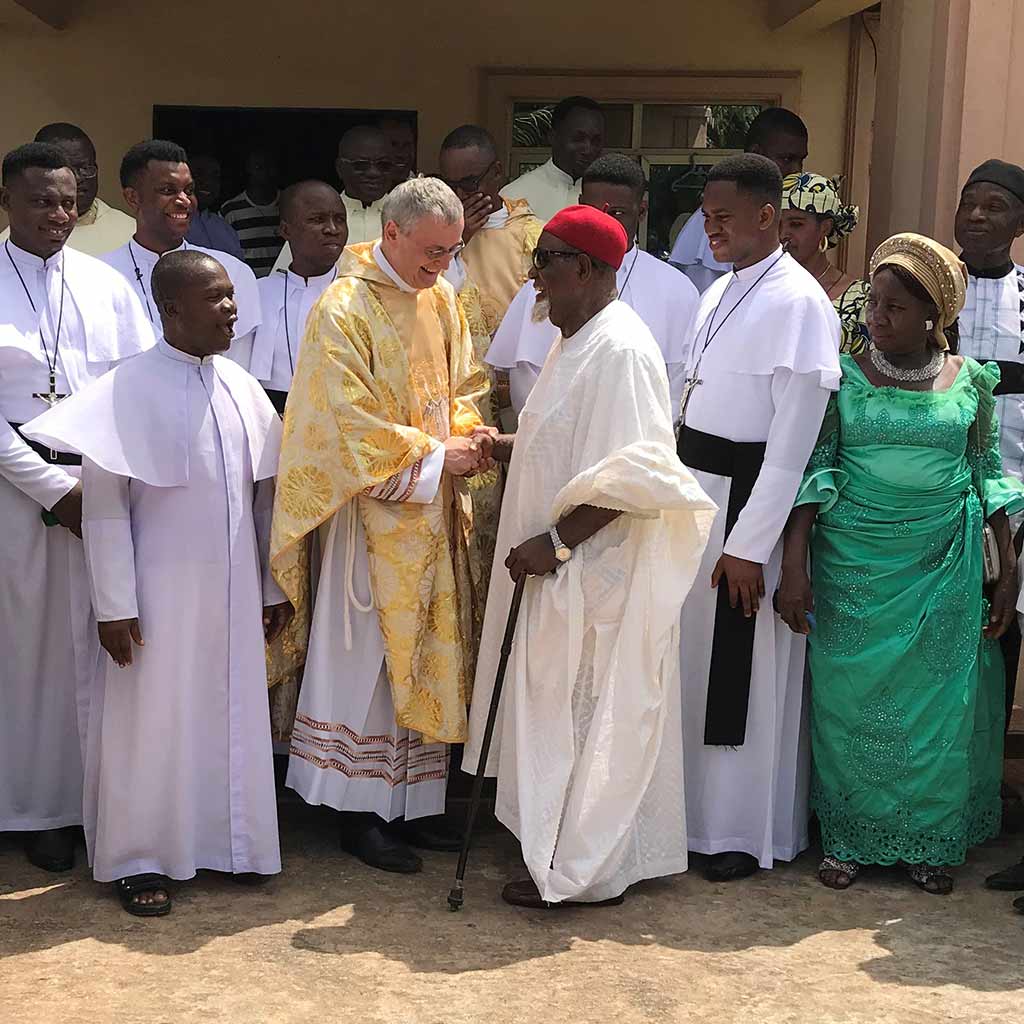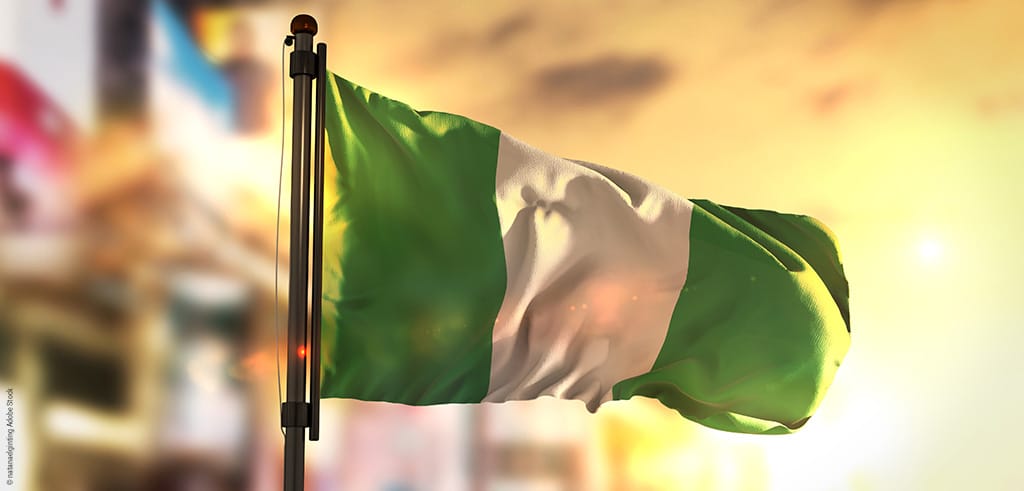
Good Prospects for Nigeria
Nigeria’s Promising Future - Perpetual consecration given to 5 Confreres
It is mango-harvesting season, patchy lizards, black and orange, can be found everywhere. Everyone is waiting for the rain to come. Shelter from the sun was provided by umbrellas and canopies.
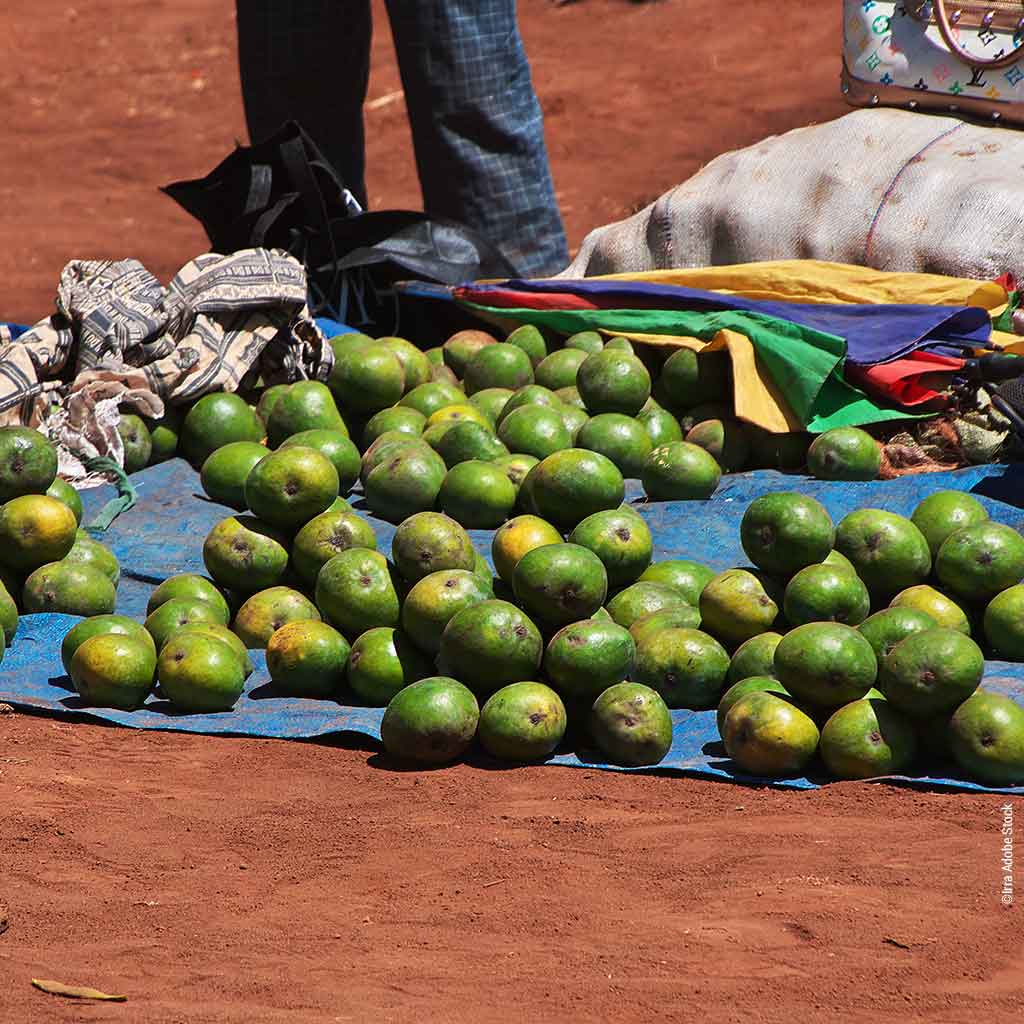

Temperatures were rising to 30 degrees Celsius as 5 young Nigerian confreres were given their perpetual consecration in Mbaukwu, Nigeria: our confreres Henry, Jude, Lawrence, Stanley and Vincent formed the centre of attention on that special day. Provincial Fr. Helmut Scharler encouraged all attendants to start „thinking big “. According to him, God’s great promise was always bigger than men’s plans.
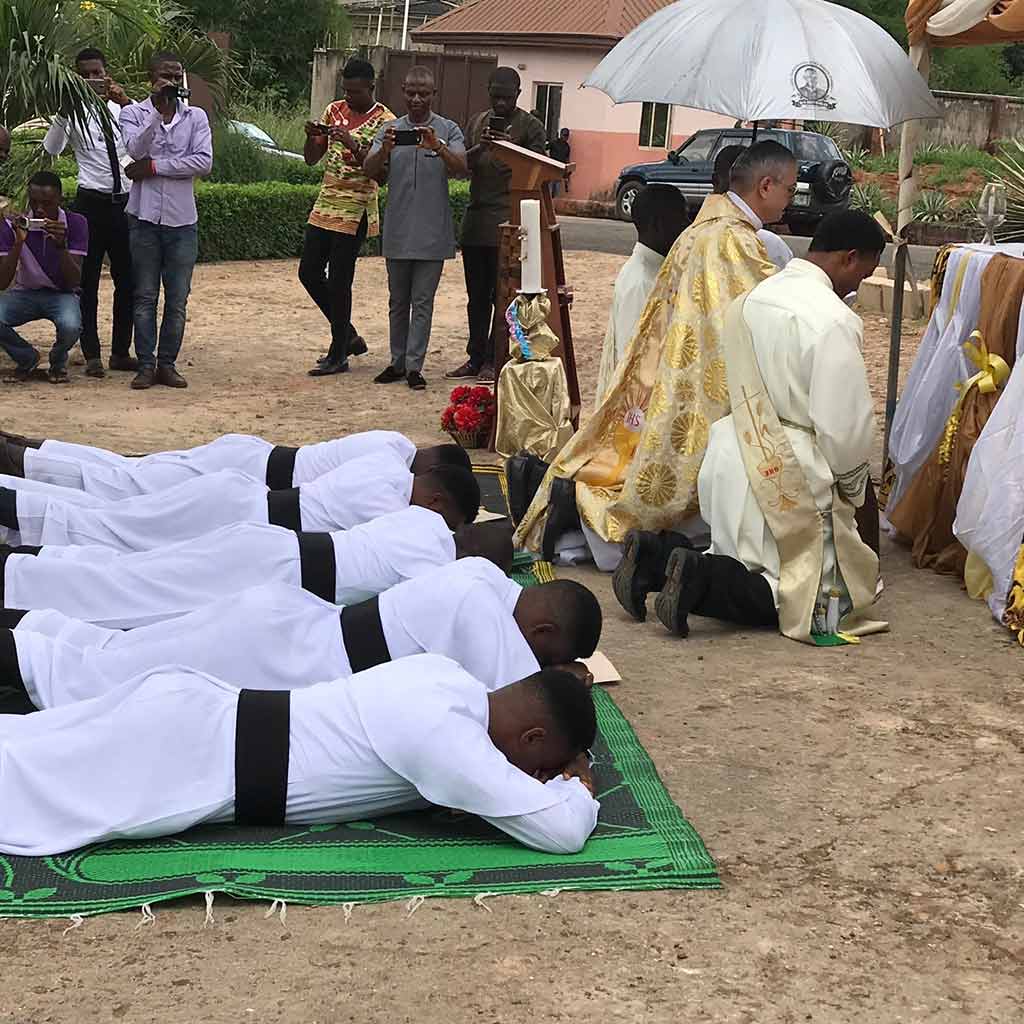
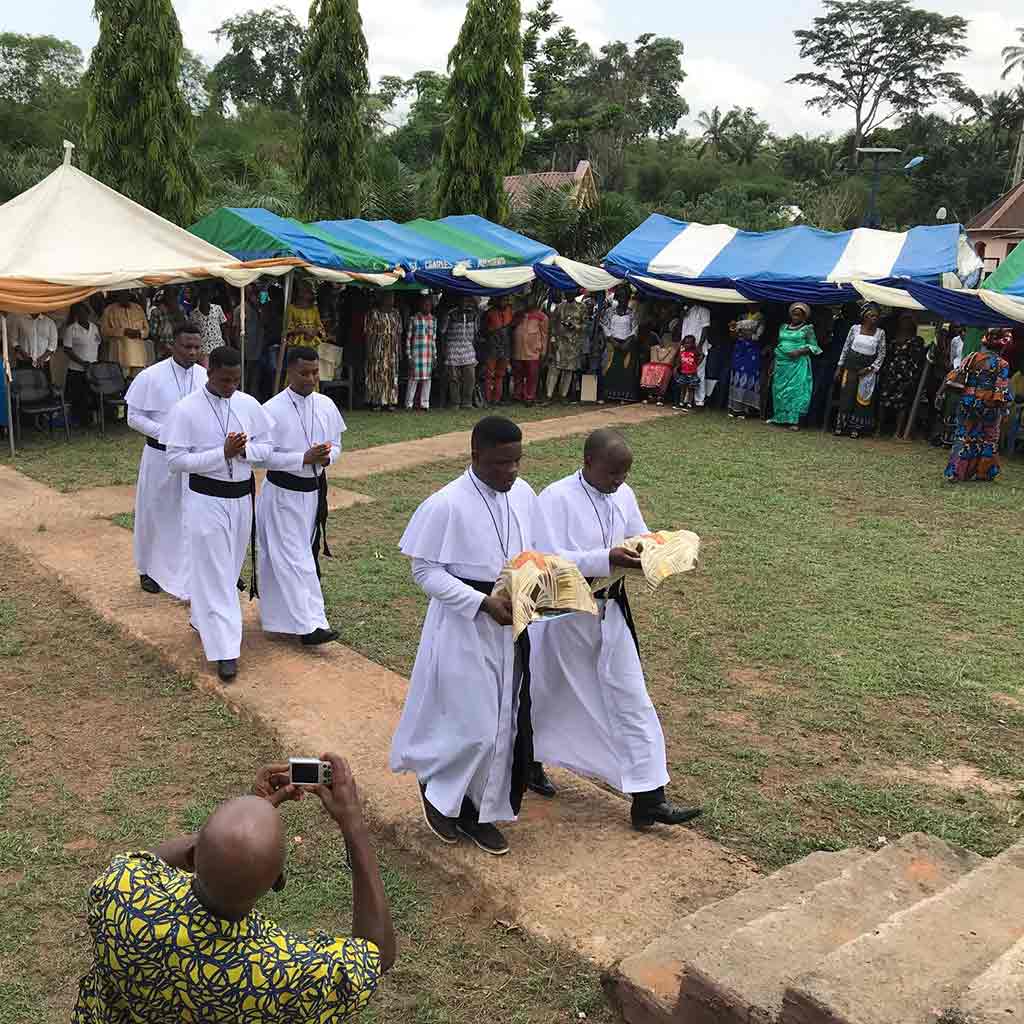
We were especially honored to have the Igwe (the local king) attending the ceremony. In his speech he openly stated that he was about to give further land to the Pallottines.
The Pallottine community is still in its infancy – yet growing fast. There are more than 20 confreres possessing perpetual consecration. 9 postulants, 11 novices as well as 13 students are livening up things at the assembly hall by meeting up for a joint Easter celebration.
“I am proud of our new „perpetual “confreres, proud of their eagerness, ambitiousness and their love of Vincence Pallotti. Our Pallottine community in Nigeria is facing a promising future! “, Provincial Fr. Scharler stated happily.
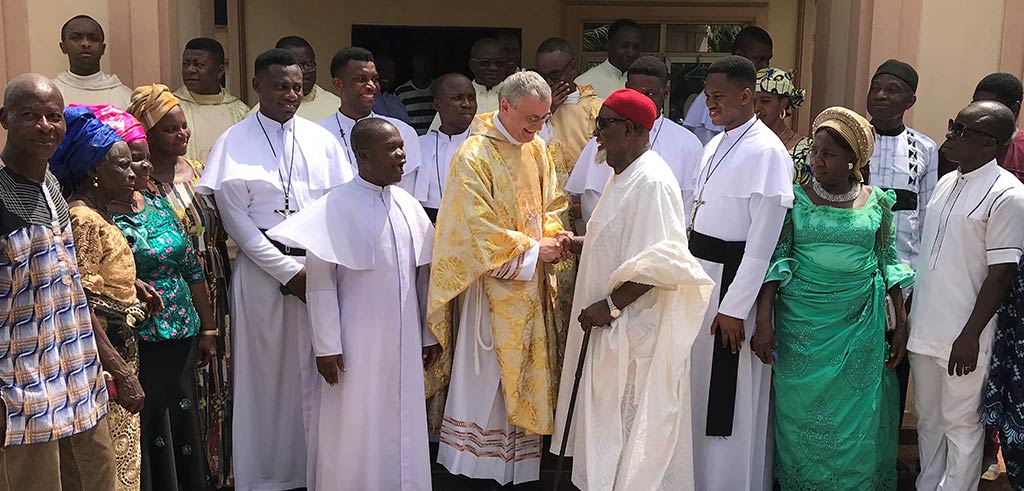
Nigeria with its 190 million inhabitants, is the most populous country in Africa, and represents 2.5% of the world’s entire population (whereas Germany and Austria together represent 1.2 %). It’s main capital is the city of Abuja. Yet Lagos with its 9 million inhabitants is the country’s biggest and Kano (4 million inhabitants) country’s second biggest city.
The country’s official language is English, spoken by half of its citizens, approx. It’s also taught in schools. Besides there are round about 250 ethnic groups and tribes each having their own languages. The three main groups are the Hausa-Fulani, the Yoruba and the Igbo tribe. According to official statements about half of the Nigerians confess to Islam, 40 % of its population are Christians and 10 % confess to traditional African religions.
The Nigerian national economy profits from its oil deposits, yet Nigeria still ranges among the world’s poorest countries. Approximately two thirds of the country’s population suffer from extreme poverty.
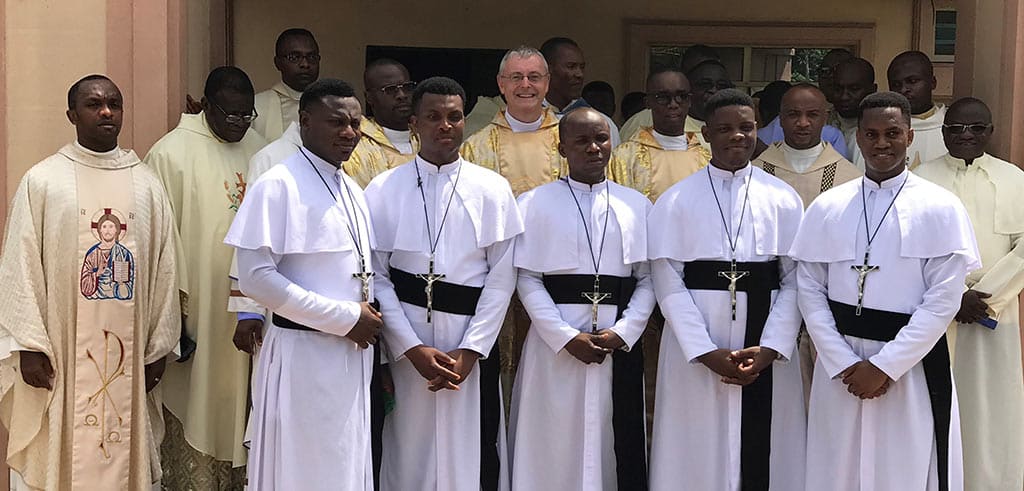
Recommended


